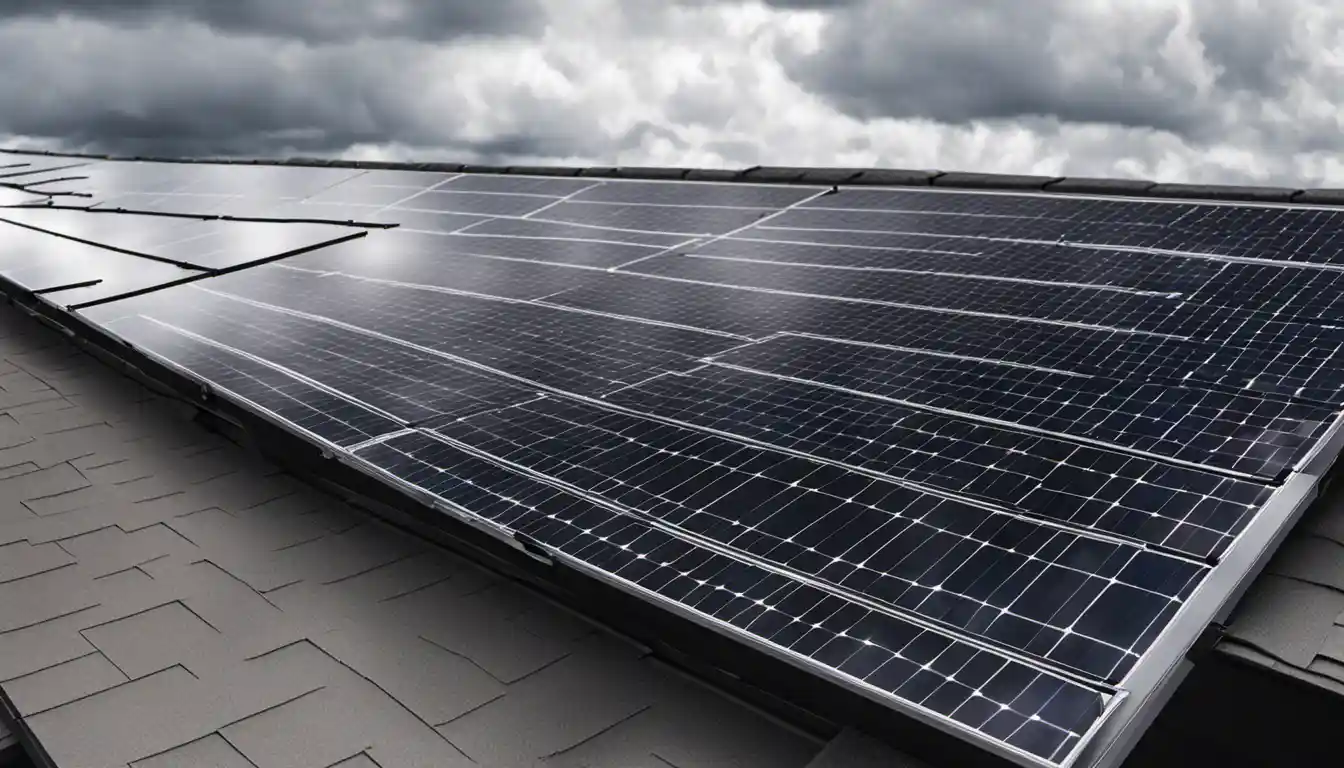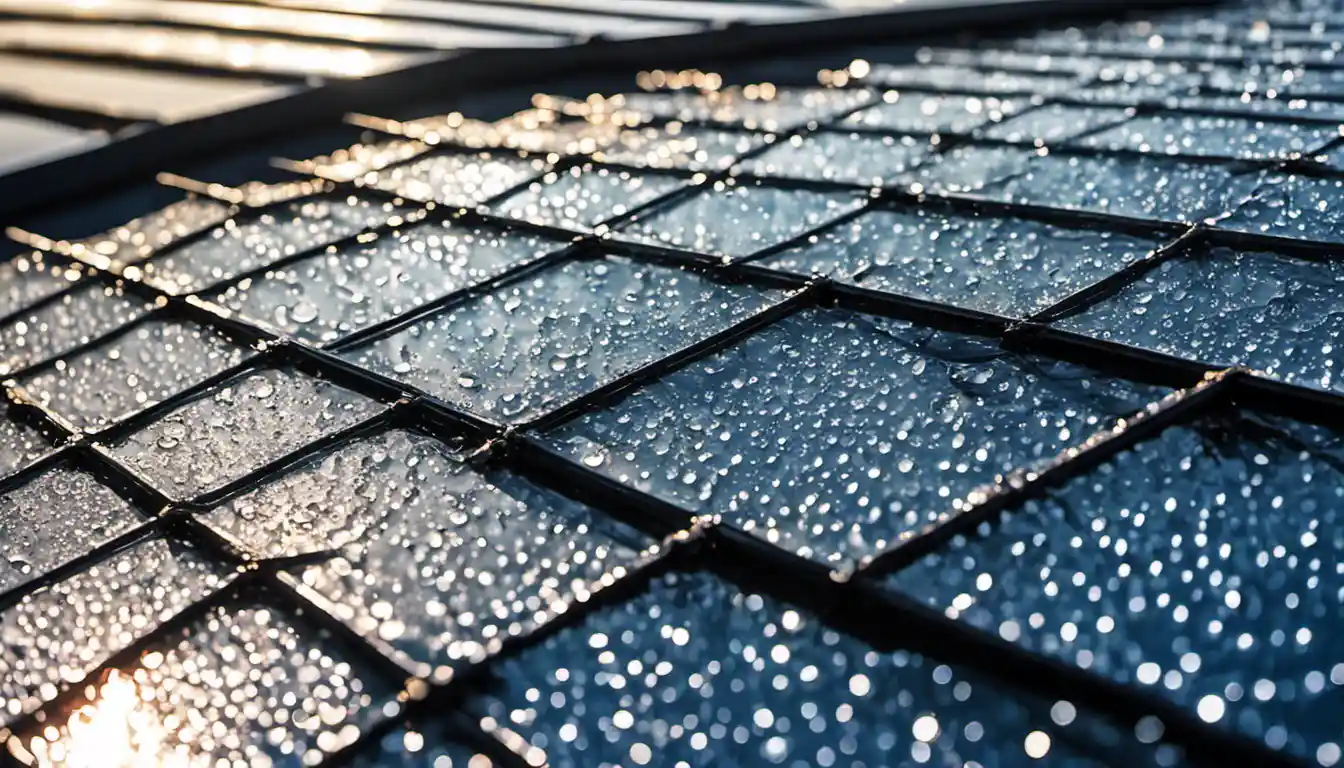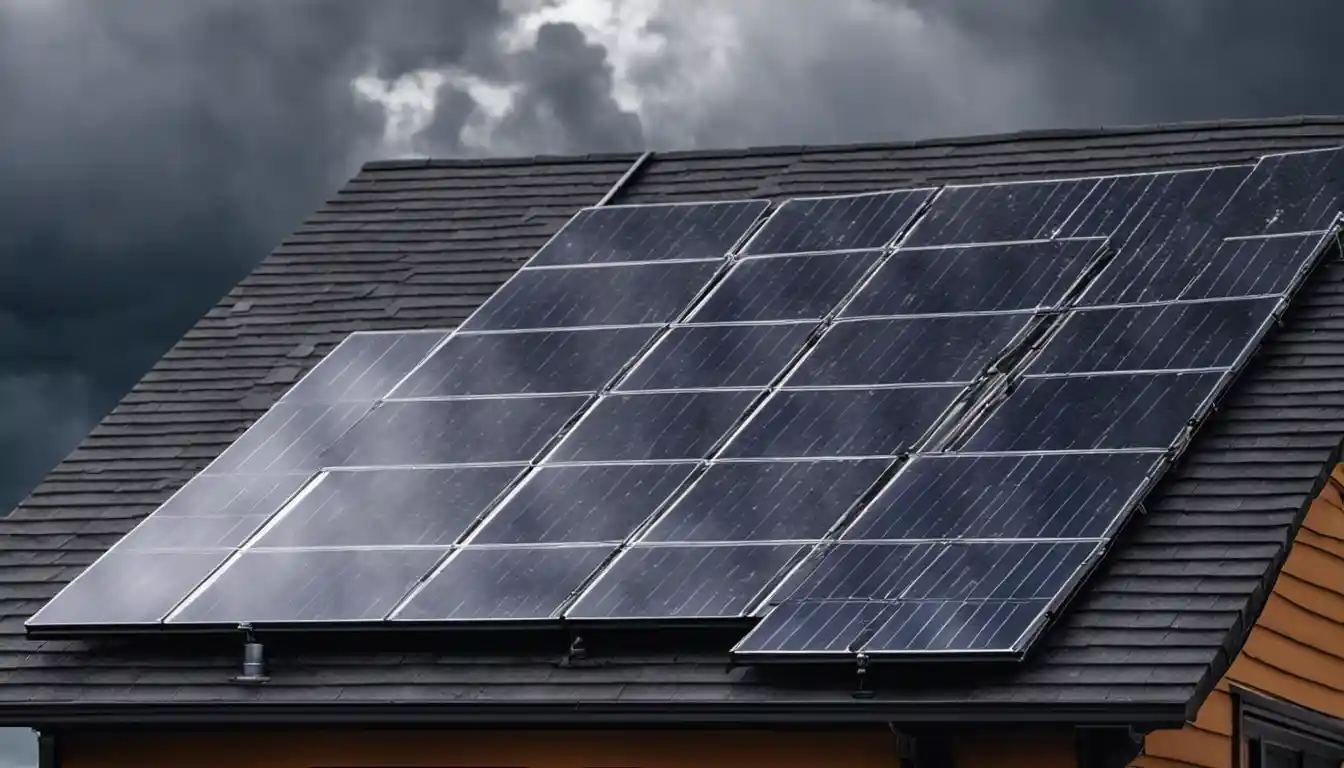Introduction: Is Solar Energy Weather Dependent?
Weather can significantly affect the efficiency of solar panels. Sunny weather is optimal for solar panels as they convert sunlight into electricity, meaning the more sunlight they receive, the more energy they can produce. Conversely, during cloudy, rainy, or snowy conditions, panels receive less direct sunlight, which can reduce their power output.
Understanding the Impact of Weather on Solar Panels
The capacity of solar panels to generate energy can be influenced by varying weather conditions. To understand how solar panels operate optimally or less efficiently, let’s break down some of the typical weather scenarios.
See also: Wind Effect On Solar Panels
Do Clouds Influence Solar Panels?
See also: Do Solar Panels Work On Cloudy Days? (Cooler Efficiency!)
Effect on Partly Cloudy Days
Contrary to popular belief, a partly cloudy day can sometimes enhance the performance of solar panels. The photovoltaic cells in solar panels convert both direct and scattered sunlight into electricity. When clouds briefly diffuse sunlight, it spreads more evenly across the panels, sometimes resulting in an increase in power output.
See also: How To hide solar panels (Vital Security)
Influence on Overcast Days

On overcast days, the presence of more persistent, heavy cloud cover can reduce the amount of sunlight reaching the panels, leading to a drop in energy production. However, even in these conditions, solar panels do not stop producing electricity. They continue to generate power albeit at reduced rates, usually between 10% and 25% of their maximum capacity.
See also: Do Solar Panels Work At Night? (Moonlight Power!?)
The Optimal Temperature for Solar Panel Performance
While it’s easy to imagine that solar panels prefer a sweltering sunny day, the truth is a little more complicated.
See also: Do Solar Panels Work in Cold Weather? Uncovering the Truth
How High Temperatures Affect Solar Panels
Solar panels are tested and rated at a standard temperature of 25 degrees Celsius (77 degrees Fahrenheit). For every degree above that, the power output of a solar panel decreases by approximately 0.5%. So, a hot, sunny day may not be as beneficial as you might imagine. Extremely high temperatures can, in fact, reduce the overall efficiency of your solar panels.
See also: Do Solar Panels Work Covered in Ice? Exploring the Impact of Wintery Conditions
Cold Temperatures and Solar Panels
Interestingly, lower temperatures can improve the solar panel’s performance as the cold conditions reduce the thermal carrier concentrations within the panels, enhancing their voltage and power output. Provided that there is ample sunlight, a bright winter day can be an excellent conditioner for your solar panels.
See also: Can Solar Panels Withstand Hurricanes? Discover The Astonishing Truth!
Solar Panel Performance in Rainy and Snowy Weather
A common concern when considering solar power is how solar panels react to rainy and snowy conditions. If rain and snow are persistent, will the panels generate sufficient power?
See also: Does Temperature Affect Solar Panels? Unveiling the Facts and Myths
Can Solar Panels Operate in the Rain?

The short answer – yes, they can. A useful comparison is with clothes; just as fabric doesn’t stop being cloth when it gets wet, solar panels don’t stop being sunlight absorbers when they receive rain. Panels are waterproof and weather-resistant. During rainy spells, panels can help create energy from diffused light, though the power output will likely be diminished. Rain can even be beneficial as it can clean the dust off your panels leading to a more efficient operation during subsequent sunny periods, as explained in our article using Rain-X on solar panels.
See also: Do Solar Panels Work in the Shade? Unveiling the Truth
The Impact of Snow on Solar Panels
While snow can block sunlight from reaching the panels, thus potentially reducing production, it poses less of a problem than many realize. Most solar panels are installed at an angle, so snow will typically slide off on its own. Also, the sunlight reflected off snow can enhance the solar energy generation, leading to reasonable performances on sunny winter days. For information on maintaining optimal solar panel performance during snowy seasons, consider reading our article about the effect of snow on solar panels.
See also: Can Solar Panels Be Damaged by Hail? Discover the Facts and Protective Measures.
Wind and its Impact on Solar Panels
High wind speeds, while potentially providing a renewable energy source themselves, can pose a risk to solar panel installations. However, with the right preparation, this does not have to be a problem.
How Wind Affects Solar Panel Efficiency
High winds can cool down solar panels, aiding in improving the panel’s efficiency. However, extreme wind conditions can shake or damage the panels and, in worst-case scenarios, blow them away.
Measures to Protect Solar Panels from Wind
Whether it be securing your solar panels with sturdy mounts or employing wind barriers to shield them, there are various measures available to defend your solar panels against strong wind conditions.
How to Maintain Solar Panel Efficiency during Bad Weather

Weather variations pose risks, but with proper maintenance and appropriate steps, we can safeguard the efficiency of solar panels. Check out these tips to weather-proof your solar panels.
Backup Solar Power Solutions
Investing in adequate battery storage systems will ensure that you have a backup supply of solar energy for those less sunny days.
Recommendations for Homes and Businesses
If you’re in an area where certain weather conditions, such as heavy snowfall or excessive rain, are frequent, you may want to consider installing solar panels at sharper angles or waterproofing them to increase effectiveness.
The Bottom Line: Harnessing Solar Power Regardless the Weather
While weather does indeed affect solar panel performance, modern panels are designed to withstand these conditions, and still produce power. Savvy users will take measures to optimize their systems for the local climate, ensuring as consistent a power supply as possible.
Conclusion: Weather Considerations for Prospective Solar Panel Owners
In sum, solar panels are more than capable of standing up to the weather’s whims, be it heat, cold, rain or snow, as explored in our piece on how solar panels work even in the rainy season. The key is to understand the relationship between weather and solar panels. With this knowledge, you can take steps to maximize your system’s efficiency and get the most out of your investment, no matter the weather.



